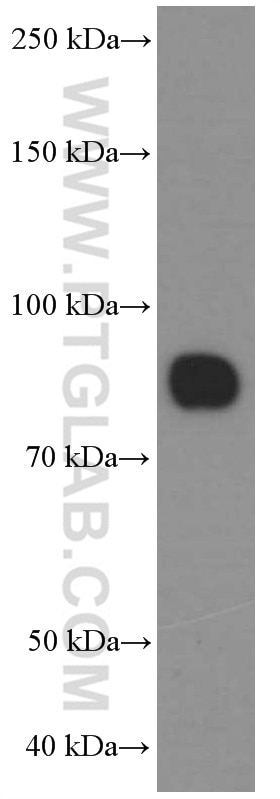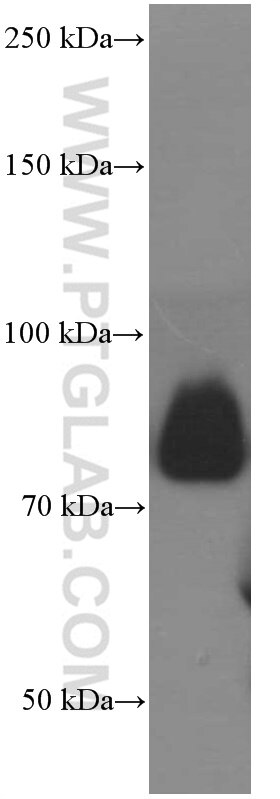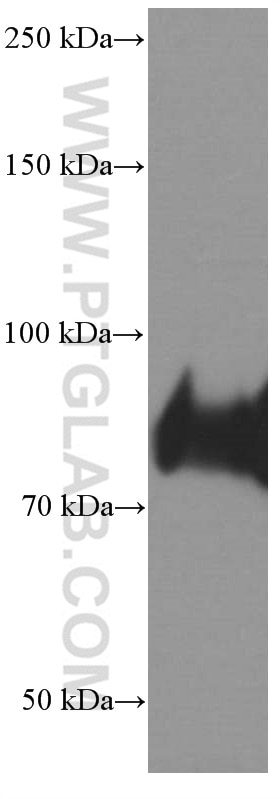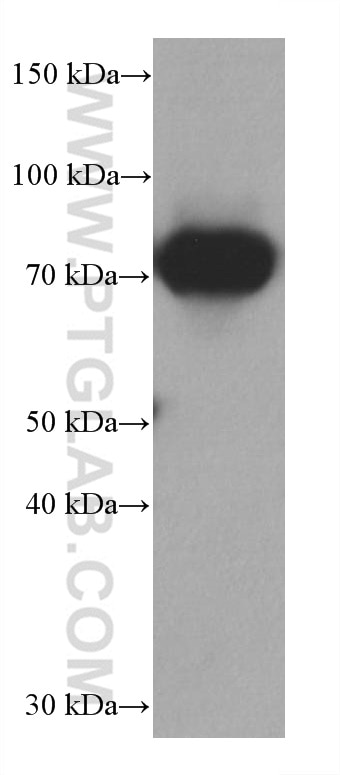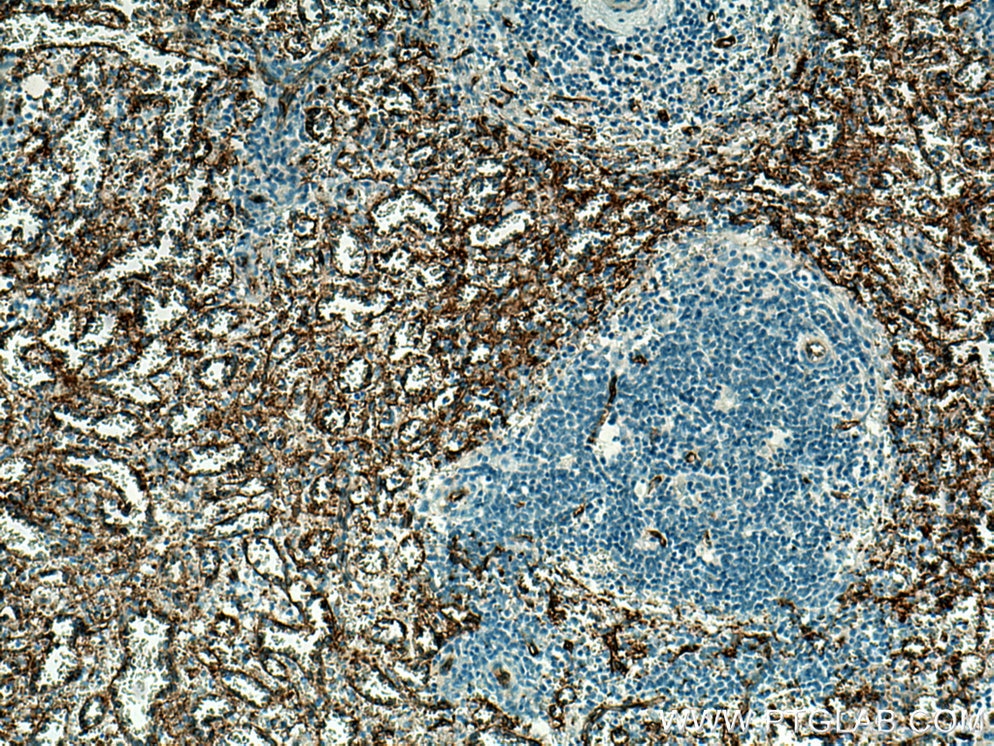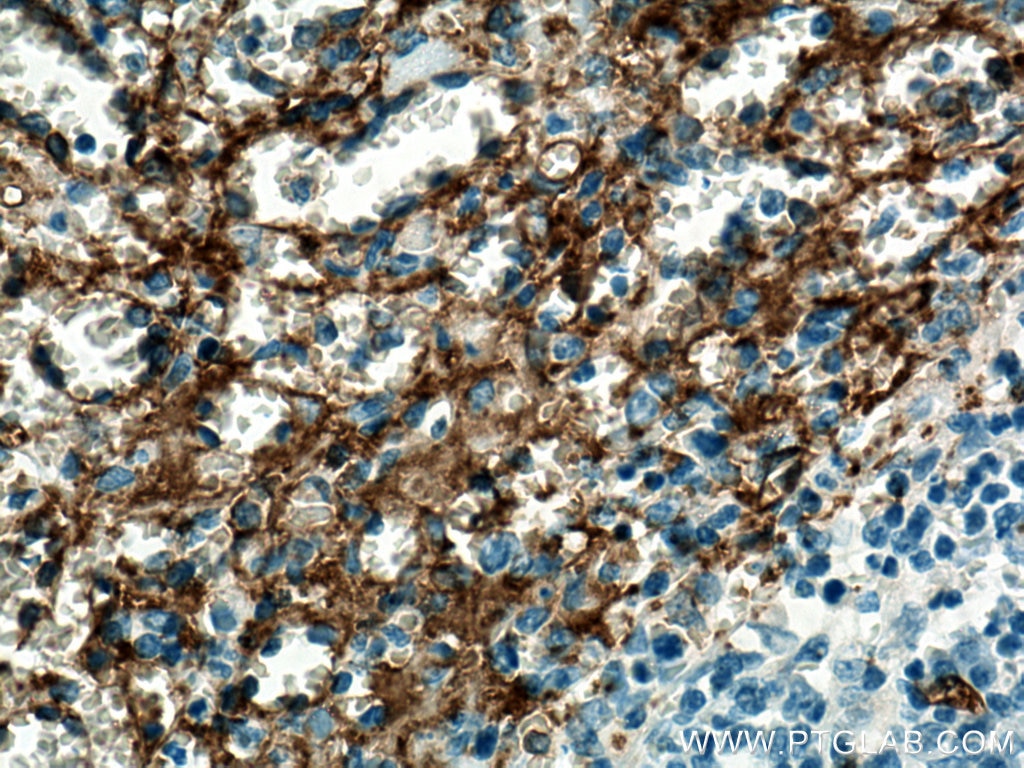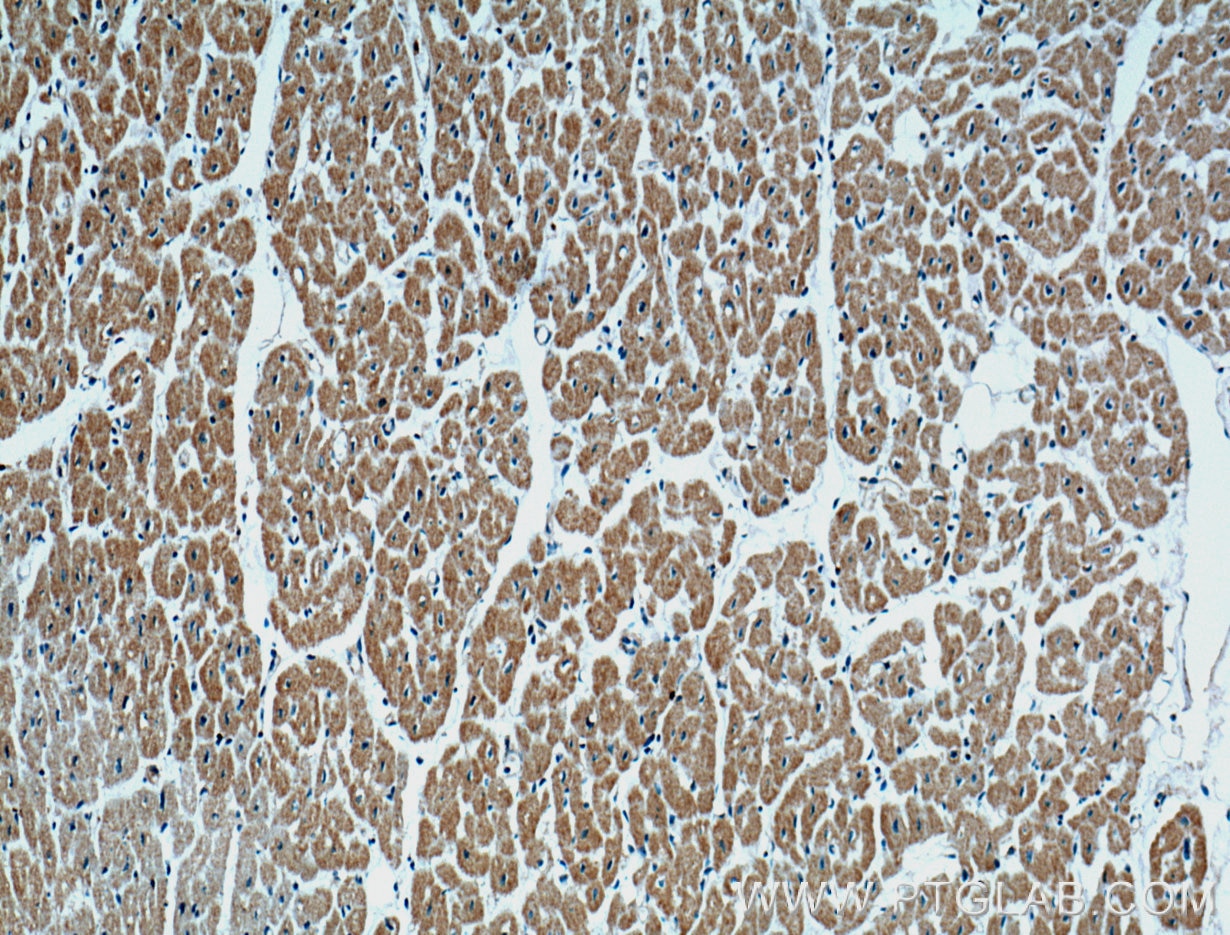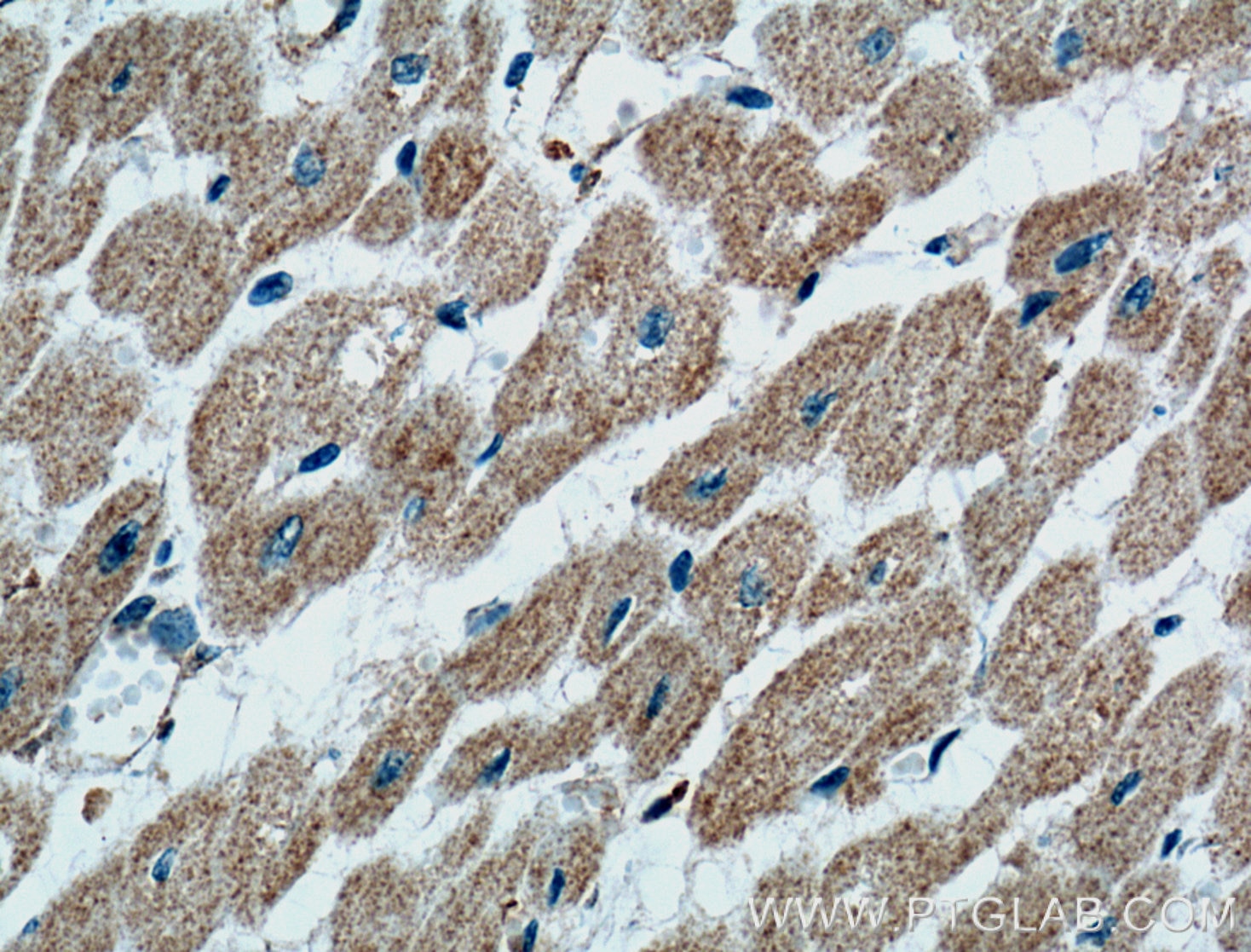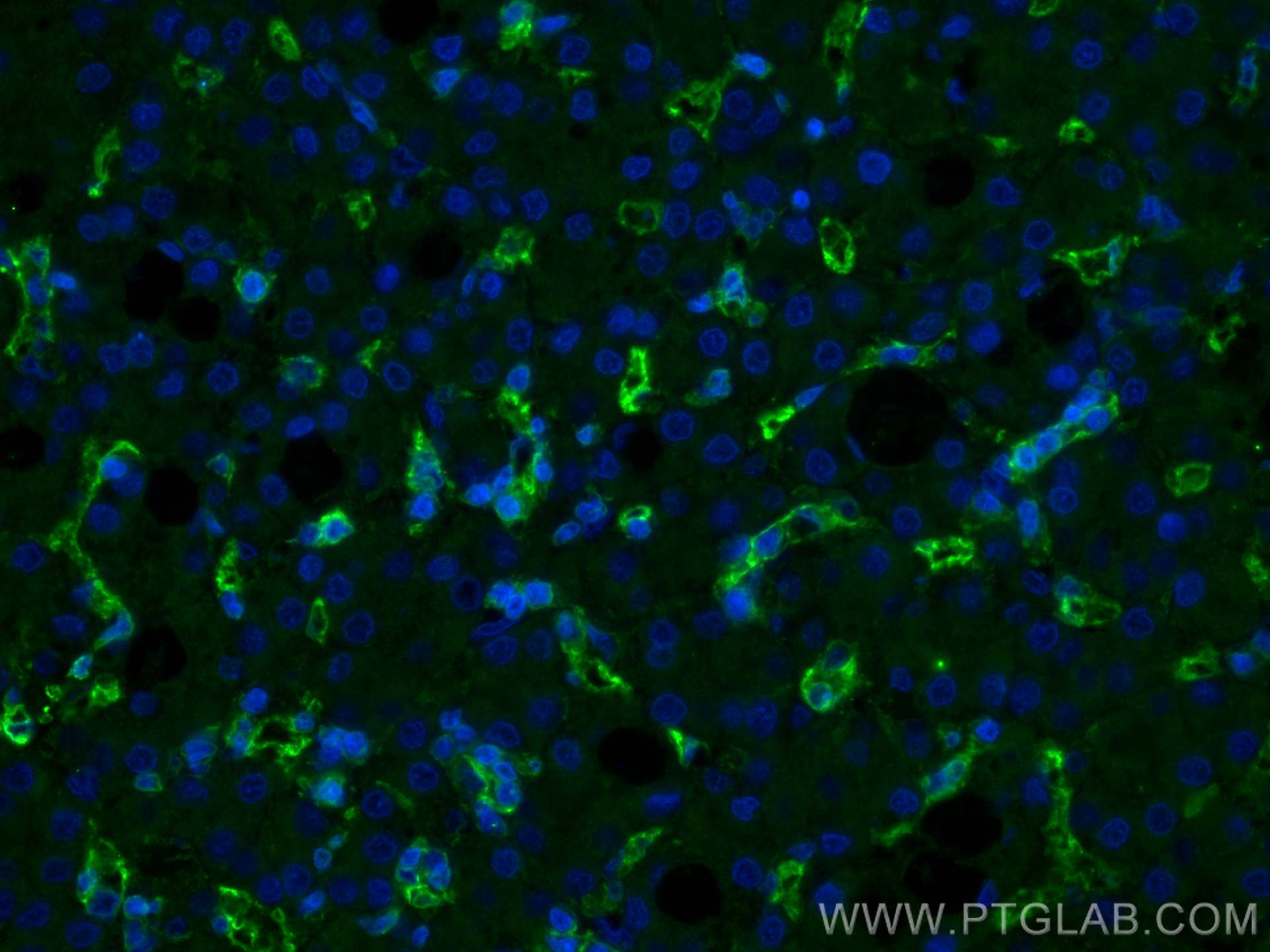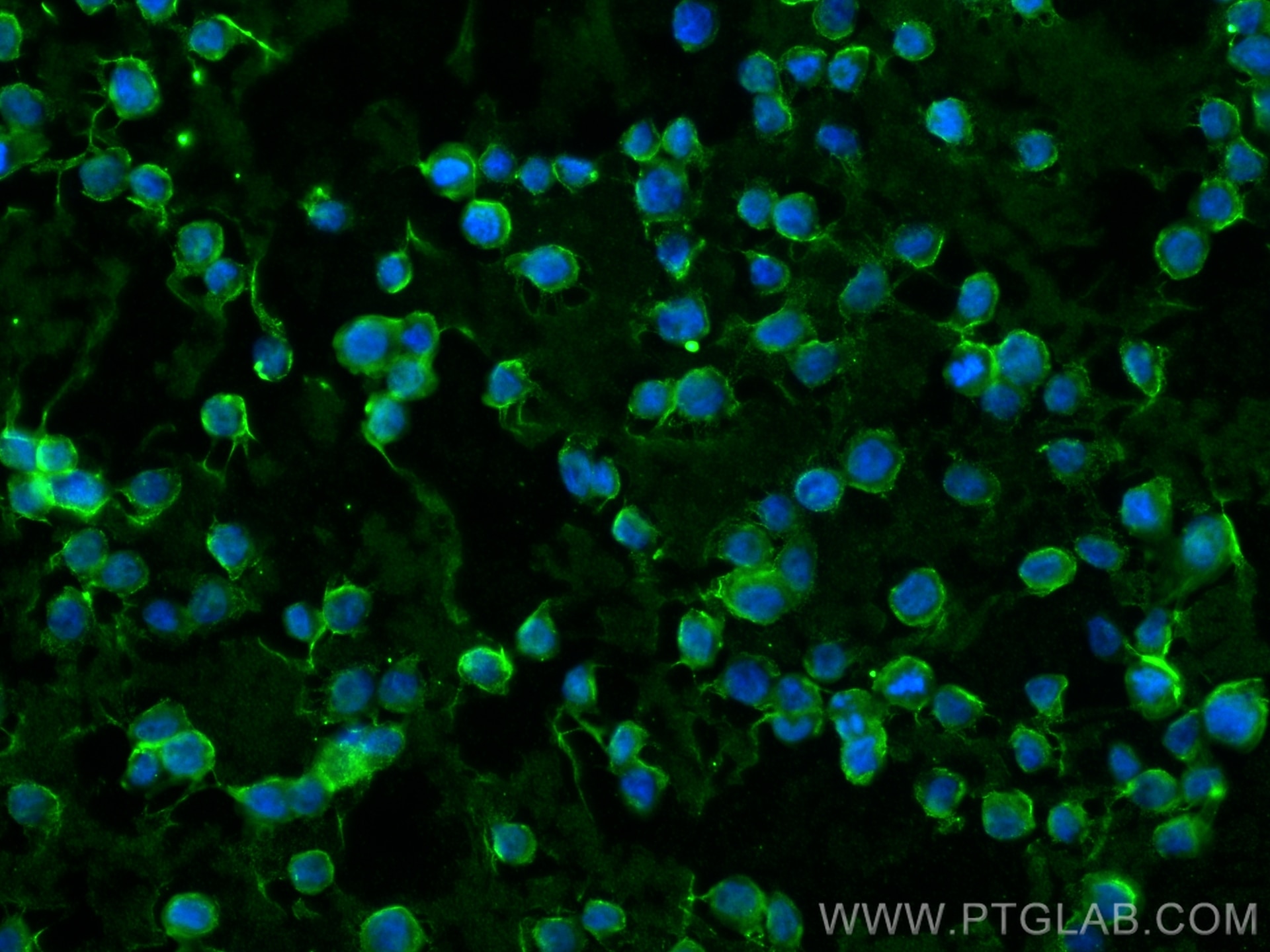Tested Applications
| Positive WB detected in | human heart tissue, human milk, human spleen tissue, human placenta tissue |
| Positive IHC detected in | human spleen tissue, human heart tissue Note: suggested antigen retrieval with TE buffer pH 9.0; (*) Alternatively, antigen retrieval may be performed with citrate buffer pH 6.0 |
| Positive IF-P detected in | human liver cancer tissue, THP-1 cells |
| Positive IF/ICC detected in | THP-1 cells |
Recommended dilution
| Application | Dilution |
|---|---|
| Western Blot (WB) | WB : 1:1000-1:6000 |
| Immunohistochemistry (IHC) | IHC : 1:500-1:2000 |
| Immunofluorescence (IF)-P | IF-P : 1:200-1:800 |
| Immunofluorescence (IF)/ICC | IF/ICC : 1:400-1:1600 |
| It is recommended that this reagent should be titrated in each testing system to obtain optimal results. | |
| Sample-dependent, Check data in validation data gallery. | |
Published Applications
| KD/KO | See 1 publications below |
| WB | See 19 publications below |
| IHC | See 3 publications below |
| IF | See 5 publications below |
| IP | See 1 publications below |
Product Information
66395-1-Ig targets CD36 in WB, IHC, IF/ICC, IF-P, IP, ELISA applications and shows reactivity with human samples.
| Tested Reactivity | human |
| Cited Reactivity | human |
| Host / Isotype | Mouse / IgG1 |
| Class | Monoclonal |
| Type | Antibody |
| Immunogen |
CatNo: Ag13541 Product name: Recombinant human CD36 protein Source: e coli.-derived, PET28a Tag: 6*His Domain: 1-472 aa of BC008406 Sequence: MGCDRNCGLIAGAVIGAVLAVFGGILMPVGDLLIQKTIKKQVVLEEGTIAFKNWVKTGTEVYRQFWIFDVQNPQEVMMNSSNIQVKQRGPYTYRVRFLAKENVTQDAEDNTVSFLQPNGAIFEPSLSVGTEADNFTVLNLAVAAASHIYQNQFVQMILNSLINKSKSSMFQVRTLRELLWGYRDPFLSLVPYPVTTTVGLFYPYNNTADGVYKVFNGKDNISKVAIIDTYKGKRNLSYWESHCDMINGTDAASFPPFVEKSQVLQFFSSDICRSIYAVFESDVNLKGIPVYRFVLPSKAFASPVENPDNYCFCTEKIISKNCTSYGVLDISKCKEGRPVYISLPHFLYASPDVSEPIDGLNPNEEEHRTYLDIEPITGFTLQFAKRLQVNLLVKPSEKIQVLKNLKRNYIVPILWLNETGTIGDEKANMFRSQVTGKINLLGLIEMILLSVGVVMFVAFMISYCACRSKTIK Predict reactive species |
| Full Name | CD36 molecule (thrombospondin receptor) |
| Calculated Molecular Weight | 472 aa, 53 kDa |
| Observed Molecular Weight | 88 kDa |
| GenBank Accession Number | BC008406 |
| Gene Symbol | CD36 |
| Gene ID (NCBI) | 948 |
| RRID | AB_2811030 |
| Conjugate | Unconjugated |
| Form | Liquid |
| Purification Method | Protein G purification |
| UNIPROT ID | P16671 |
| Storage Buffer | PBS with 0.02% sodium azide and 50% glycerol, pH 7.3. |
| Storage Conditions | Store at -20°C. Stable for one year after shipment. Aliquoting is unnecessary for -20oC storage. 20ul sizes contain 0.1% BSA. |
Background Information
Function
CD36, also known as platelet glycoprotein 4, is an integral membrane glycoprotein that acts as a scavenger receptor. CD36 can bind to multiple ligands, including thrombospondin-1, collagen, oxidized phospholipids, oxidized low-density lipoprotein, and long-chain fatty acids. CD36 can also bind to erythrocytes parasitized by Plasmodium falciparum and apoptotic cells. CD36 mediates different biological processes, acting as a signaling hub in angiogenesis, inflammatory response, and fatty acid metabolism.
Tissue specificity
CD36 is present on the surface of various cells types, such as adipocytes, monocytes, macrophages, platelets, microvascular endothelial cells, dendritic cells, and hematopoietic precursors of red cells.
Involvement in disease
-
Mutations in CD36 can give rise to platelet glycoprotein IV deficiency, a type of macrothrombocytopenia.
-
Polymorphisms in CD36 can increase susceptibility to malaria.
-
AAGIC haplotype at the CD36 locus increases the risk of coronary heart disease.
-
Disruption of CD36-dependent pathways and certain SNPs in the CD36 gene are attributed to impaired fatty acid metabolism, glucose intolerance, Alzheimer's disease, atherosclerosis, arterial hypertension, diabetes, and cardiomyopathy.
Isoforms
Apart from the full-length protein (isoform 1), one additional shorter isoform has been reported (PMID: 7509795). Other alternative isoforms have also been detected on the mRNA level (PMID: 17673938).
Post-translational modifications
The extracellular domain of CD36 is extensively glycosylated. Glycosylation is needed for the transport of CD36 to the plasma membrane, as well as mediating recognition and binding to ligands. Cytoplasmic tails of transmembrane domains can be phosphorylated and play a role in signal transduction. Intracellular domains can be additionally acetylated, ubiquitinated, and palmitoylated (PMID: 28919632).
Cellular localization
CD36 is present on the cell surface.
Protocols
| Product Specific Protocols | |
|---|---|
| IF protocol for CD36 antibody 66395-1-Ig | Download protocol |
| IHC protocol for CD36 antibody 66395-1-Ig | Download protocol |
| WB protocol for CD36 antibody 66395-1-Ig | Download protocol |
| Standard Protocols | |
|---|---|
| Click here to view our Standard Protocols |
Publications
| Species | Application | Title |
|---|---|---|
Cell Metab Targeting Erbin-mitochondria axis in platelets/megakaryocytes promotes B cell-mediated antitumor immunity | ||
Oxid Med Cell Longev Idol Depletion Protects against Spontaneous Atherosclerosis in a Hamster Model of Familial Hypercholesterolemia. | ||
Int J Biol Sci LAMC1-mediated preadipocytes differentiation promoted peritoneum pre-metastatic niche formation and gastric cancer metastasis. | ||
Cells The Exocyst Is Required for CD36 Fatty Acid Translocase Trafficking and Free Fatty Acid Uptake in Skeletal Muscle Cells | ||
Food Funct CD36 and DGAT2 facilitate the lipid-lowering effect of chitooligosaccharides via fatty acid intake and triglyceride synthesis signaling. |
Reviews
The reviews below have been submitted by verified Proteintech customers who received an incentive for providing their feedback.
FH Wojciech (Verified Customer) (12-22-2022) | 66395-1-Ig works very well at 1:1000 in Jurkat cells. Detected molecular weight was ~90 kDa.
|
FH Wojciech (Verified Customer) (12-19-2022) | CD36 Mouse McAb worked very well with WB at 1:1000 in Jurkat cells. A strong band ~90 kDa was detected.
|

